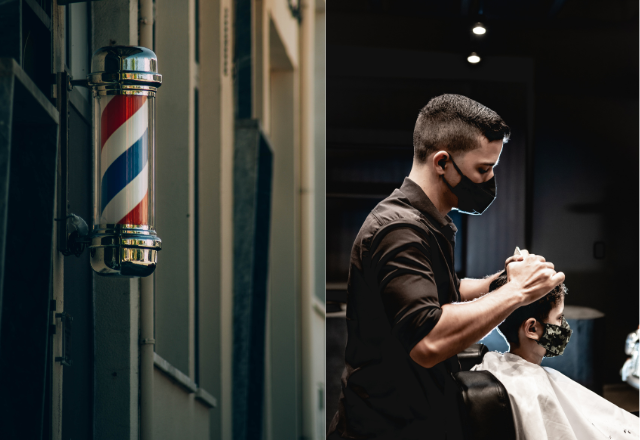If you’ve ever wondered, “How do I become a barber?”, you’re not alone. Becoming a barber is an exciting career choice that blends creativity, skill, and business opportunities. The journey to becoming a professional barber typically involves training, licensing, and gaining hands-on experience. Learn more about the tools you’ll need in our barbering tools guide. In this guide, we’ll break down everything you need to know about becoming a barber and starting a successful career in the industry.
How Do I Become a Barber? The Essential Steps
1. Research Your Local Barber Licensing Requirements
Each country or state has its own set of requirements for becoming a licensed barber. Before you begin your journey, check with your local barbering board or licensing authority to ensure you meet all necessary criteria. Most regions require barber school training, a set number of hands-on practice hours, and passing a licensing exam.

2. Enroll in a Barber School or Apprenticeship
To develop the necessary skills, you’ll need formal education or apprenticeship training. If you’re unsure how to choose the right mentor, check out our guide on how to choose a good barber.
- Barber School: Provides structured training covering haircutting techniques, shaving, hygiene, and business management. This is the fastest route to licensure.
- Apprenticeship: Allows you to work under an experienced barber, gaining real-world experience while earning a wage.
Both paths equip you with essential skills, but choosing the right one depends on your learning style and state requirements.
3. Gain Practical Experience
Becoming a skilled barber requires hands-on experience. During your training, you’ll learn essential techniques such as clipper and scissor cutting, beard grooming, and razor shaving. You’ll also develop customer service skills and understand proper sanitation practices.
Many aspiring barbers choose to practice by offering free cuts to friends and family or working as assistants in barbershops. The more hands-on experience you gain, the more confident and skilled you’ll become.
4. Pass the Barber Licensing Exam
Most regions require barbers to pass a state board exam to become officially licensed. The test usually includes:
- A written portion covering barbering theory, hygiene, and business regulations.
- A practical exam where you demonstrate haircutting and shaving techniques.
Studying thoroughly and practicing regularly will increase your chances of passing on the first attempt.
5. Apply for a Barber License
Once you pass the exam, you’ll need to submit a license application and pay any associated fees. Some regions may require ongoing education to renew your barbering license periodically.
Make sure to keep track of renewal deadlines and any additional requirements your local barbering board may impose.

6. Gain Experience in a Barbershop
If you’re wondering what to expect when visiting a barbershop, read our article on what to ask for at the barbers. After obtaining your license, it’s time to enter the industry. Many newly licensed barbers start by working in a barbershop or salon to build clientele and gain experience.
- Working in an established shop allows you to refine your skills under experienced barbers.
- Developing a loyal customer base is essential for long-term success.
- Learning the business side of barbering can help you if you plan to open your own shop in the future.
7. Continue Learning and Stay Updated
The barbering industry is constantly evolving, so staying updated with the latest trends and techniques is crucial.
- Attend barbering workshops and courses.
- Follow industry leaders and influencers.
- Experiment with new haircut styles and grooming techniques.
- Invest in high-quality tools and products. For aftercare and grooming essentials, visit Etch’s premium grooming products.
Ongoing education will ensure you stay ahead of trends and remain competitive in the industry. Stay informed with resources from NHBF – National Hair & Beauty Federation.
8. Consider Opening Your Own Barbershop
Once you’ve gained enough experience and built a loyal clientele, you might decide to open your own barbershop. This step requires careful planning.
You’ll need to create a business plan, find a suitable location, obtain the necessary permits, and consider hiring staff or renting out chairs to other barbers. Owning a barbershop gives you creative and financial freedom, allowing you to shape your brand and expand your services.

Final Thoughts
So, how do I become a barber? The process involves education, licensing, hands-on training, and continuous learning. Whether you choose to work in an established barbershop or start your own business, barbering offers a rewarding career with flexibility and growth potential. If you’re passionate about hair, grooming, and customer service, this might be the perfect path for you!
Looking for expert training? Explore local barber schools or find an apprenticeship program. For professional barbering history and insights, visit the British Barbers’ Association. to kickstart your barbering career today!






